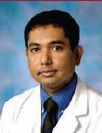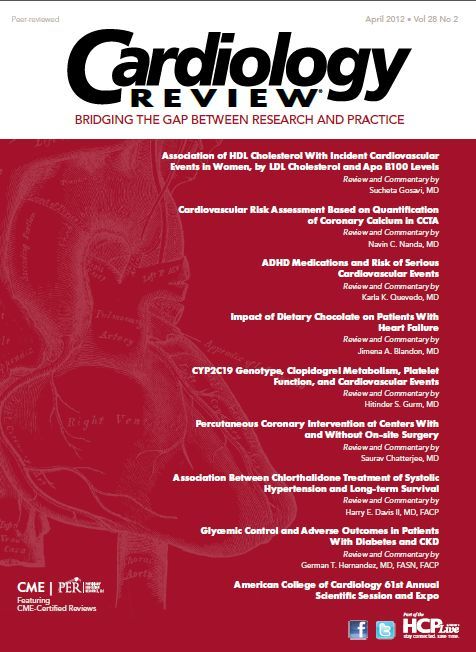Publication
Article
Cardiology Review® Online
Clinical Conundrums

Debabrata Mukherjee, MD, MS, FACC
Editor-in-Chief
I hope everyone had a nice spring break and is eager to do some insightful cardiology reading.
We touch on several clinical conundrums in this issue that I am sure our readers will find illuminating. Dr Navin Nand a addresses the need to simultaneously perform noncontrast- enhanced scans in coronary artery assessment. He writes that state-of-the-art coronary CT angiography (CCTA) can be obtained with a radiation dose approaching that of a conventional non-enhanced CAC scan, and the addition of a conventional calcium score nearly doubles the total radiation dose. Furthermore, the importance of acquiring the coronary anatomical data provided by the CCTA, as well as the additional risk stratification of coronary calcium scoring without additional radiation, cannot be overstated.
Dr Harry Davis delves into the association between chlorthalidone treatment of systolic hypertension and longterm survival. He comments that the association of 1-day
prolongation of life expectancy free from cardiovascular death for each month of antihypertensive therapy may provide excellent motivation for patients to adhere to their
prescribed therapy. He goes on to say that there is now evidence that we may want to consider using chlorthalidone as our initial choice of antihypertensive therapy or switching diuretic therapy from HCTZ to chlorthalidone when our patient’s blood pressure control is inadequate. Dr Saurav Chatterjee reports on outcomes of performing
percutaneous coronary intervention (PCI) in centers without an on-site coronary artery bypass grafting facility. He reflects that the meta-analysis makes a strong case
for further randomized data and a continuous process of quality improvement. It should be noted that the current ACC/AHA guidelines give primary PCI without on-site bypass surgery a Class IIa recommendation, and thus it is no longer contraindicated. Dr Hitind er Gurm discusses the concept of personalized genomic-based antiplatelet therapy using CYP2C19 genotyping, and states that while the idea is seductive, it should be subject to the same rigorous proof of clinical efficacy that is expected of any new therapy or agent.
Dr Karla Quevedo examines whether current or new use of ADHD medications is associated with increased risk of serious cardiovascular events and states that current or new use of ADHD medication, compared with nonuse or remote use, does not appear to be associated with an increased risk of serious cardiovascular events. In his review of a new study on glycemic control and adverse outcomes in patients with diabetes and CKD, Dr German Hernandez points out that while randomized trials specifically addressing intensive glycemic control in patients with diabetes and advanced CKD are needed to further test the results of this observational study, in the meantime it seems a reasonable approach to target a HbA1c of no less than 7%. On a sweeter (glycemic) note, Dr Jimena Bland on examines the impact of dietary chocolate on patients with heart failure, and reports that flavanol-rich chocolate did improve endothelial function. Thinking fondly of the chocolate bar on her desk, she reflects that we should be paying attention to future reports on this exciting and gastronomically pleasant treatment, and hope for some excellent and yummy chocolate flavors for our patients.
Ms Jack ie Syrop (our tireless and astute managing editor) has put together a succinct summary of several key late-breaking clinical trials presented at the ACC meeting,
which I am sure you will find useful reading. Finally, Dr Ragavend ra Baliga summarizes the ACCP’s 2012 antithrombotic guidelines, which make some key new recommendations, including the drug therapy of choice for nonvalvular atrial fibrillation.
I hope that you will find these commentaries to be valuable and enjoyable. I encourage you to share your insights, thoughts, and personal experiences on the myriad topics touched upon in this issue. On a broader level, I would love to hear feedback on how we can make this journal the best cardiology journal that reviews contemporary literature. My goal continues to be to make you look forward to every issue of Cardiology Review. Based on initial feedback, I am happy to report we are on the right track.

